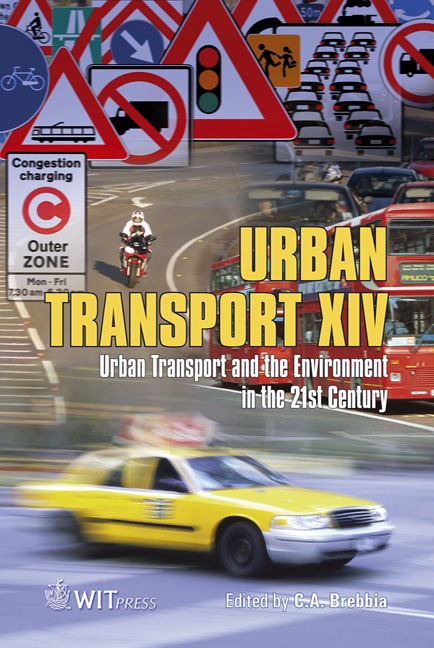When Is The Concept Of Generalized Transport Costs Useless? The Effects Of The Change In The Value Of Time
Price
Free (open access)
Transaction
Volume
101
Pages
10
Page Range
629 - 638
Published
2008
Size
365 kb
Paper DOI
10.2495/UT080611
Copyright
WIT Press
Author(s)
T. Kono, H. Morisugi & A. Kishi
Abstract
Under an exogenous working time assumption, the value of time cannot be constant: it is affected by travel time, travel fees and other exogenous factors. Our numerical simulations, assuming a nested C.E.S. form of the utility function, show that the change in value of time tends to be sensitive to travel time and slightly sensitive to travel fees. Based on the change in value of time, the influences of changes in travel time and travel fees on the number of visits can differ greatly even if those changes are equivalent in terms of generalized transportation costs. Keywords: value of time, private trip, trip demand, generalized travel cost. 1 Introduction The value of time is one of the most important variables for both trip demand forecasting and project appraisal. Almost all present practices in both trip demand forecasting and project appraisal assume the constancy of value of time, which often adopts a wage rate, as shown by Hayashi and Morisugi [7]. On the other hand, some papers, e.g., DeSerpa [6], Bruzelius [3] and Jara-Diaz [10], point out that value of time can differ from the wage rate for several reasons including fixed work hours, disutility from work, or uncertainty in travel time. Among those reasons, this paper specifically addresses fixed work hours. As is well known, under the assumption that individuals can freely choose working-time and that working is utility-neutral, the value of time is equal to the
Keywords
value of time, private trip, trip demand, generalized travel cost.





